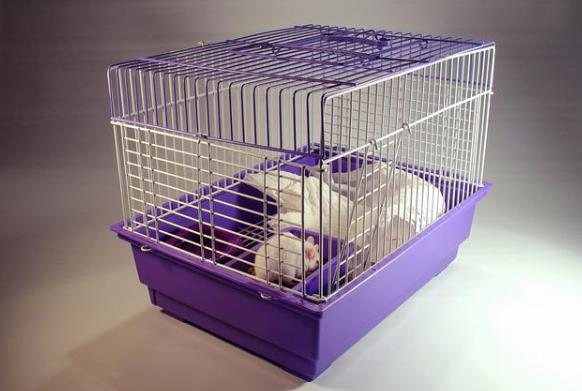Essential items that a hamster cage must have:
Hamster cage: Choose a large cage suitable for the size of the hamster to ensure there is enough space for activity. The domestic standard is a 47 basic cage for dwarf hamsters and a 60 basic cage for Syrian hamsters.

Bedding: For the bedding material, choose a dust-free, non-toxic, and highly hygroscopic substrate such as sawdust or paper. The thickness should be at least 5 cm to meet the hamster's natural instinct to dig.
Food bowl and water bottle: Choose a food bowl and water bottle with a certain weight to prevent them from being easily knocked over by the hamster.
Running wheel: Depending on the hamster variety, the size of the running wheel also varies. Generally, Syrian hamsters need a running wheel of ≥20 cm, and dwarf hamsters need a running wheel of ≥16 cm.
Litter box and urine sand: Choose a litter box with a height that is convenient for the hamster to enter and exit and is easy to clean. Guide the hamster to defecate at a fixed point.
Placement and maintenance suggestions for hamster cages:
Placement location: The hamster cage should be placed on a table higher from the ground and close to a window to obtain air circulation and sunlight. Avoid direct sunlight.
Regular cleaning: Replace the bedding and substrate weekly and thoroughly clean the cage to keep it dry and clean.
Temperature control: Hamsters are sensitive to temperature and are usually most comfortable at 18 to 24 degrees Celsius. Avoid extreme high or low temperatures. When using a heater, keep it away from the hamster cage.
Health monitoring: Regularly check the health status of the hamster, including mental state, appetite, and behavior, and discover and deal with problems in time.
